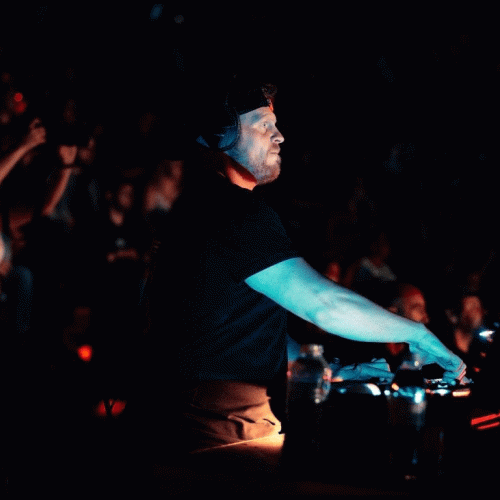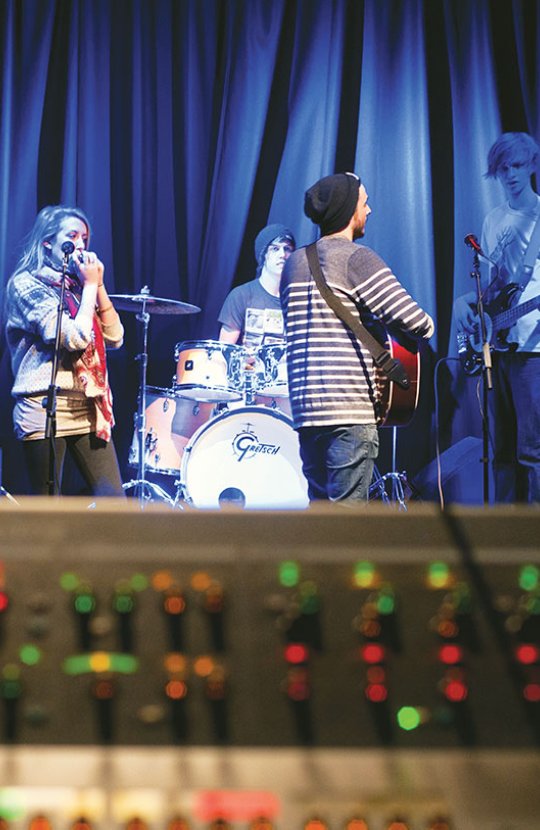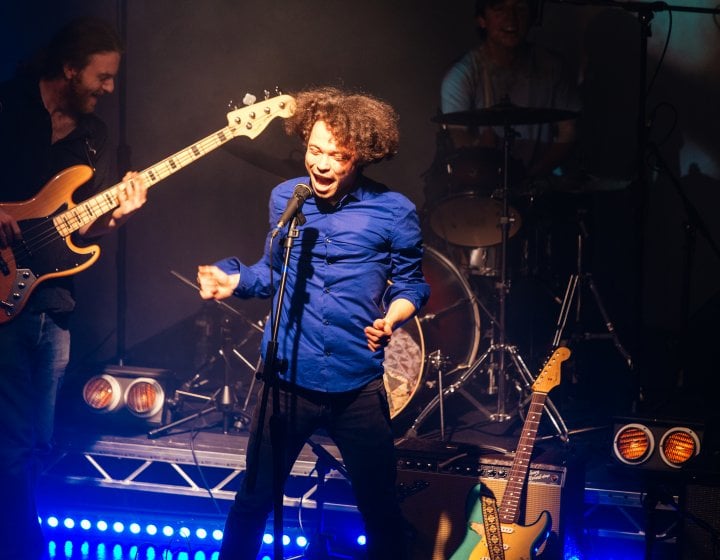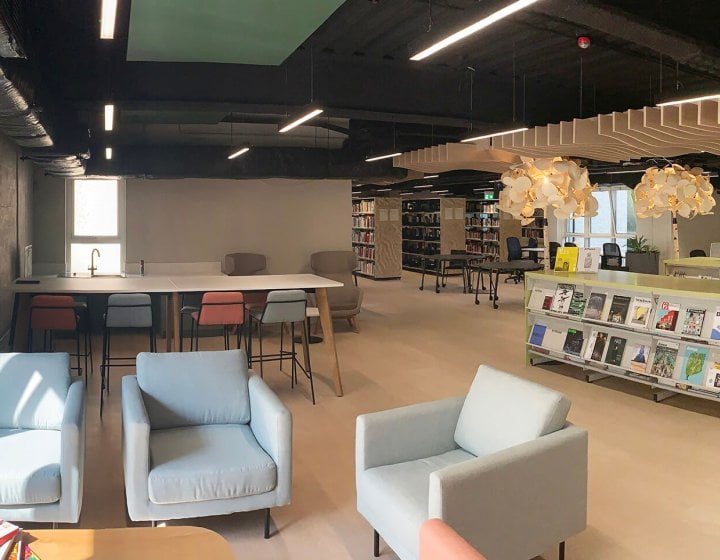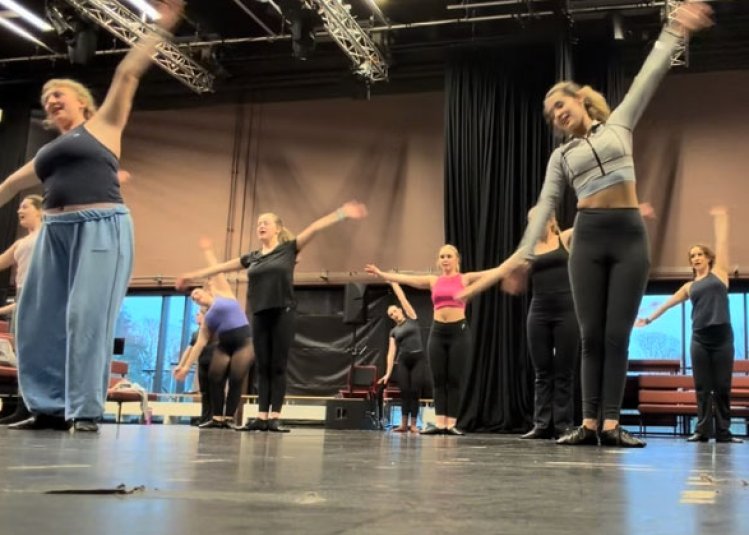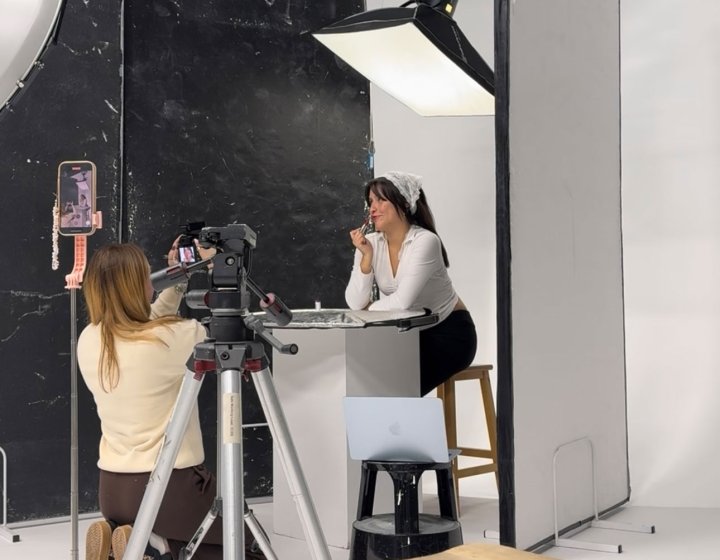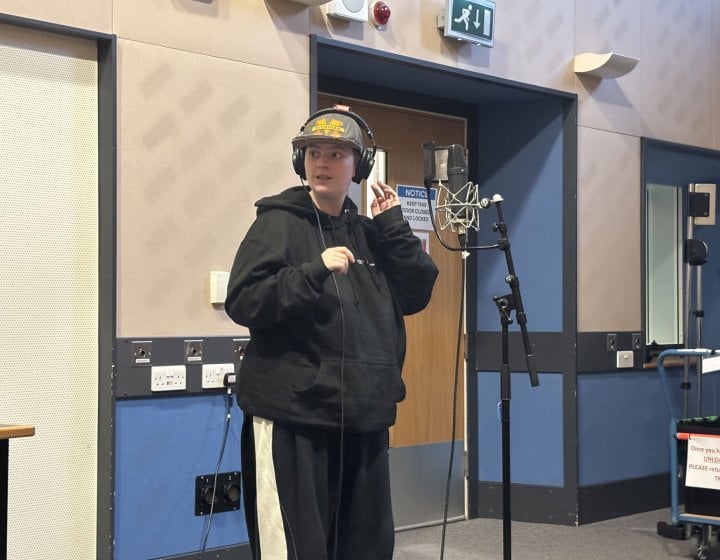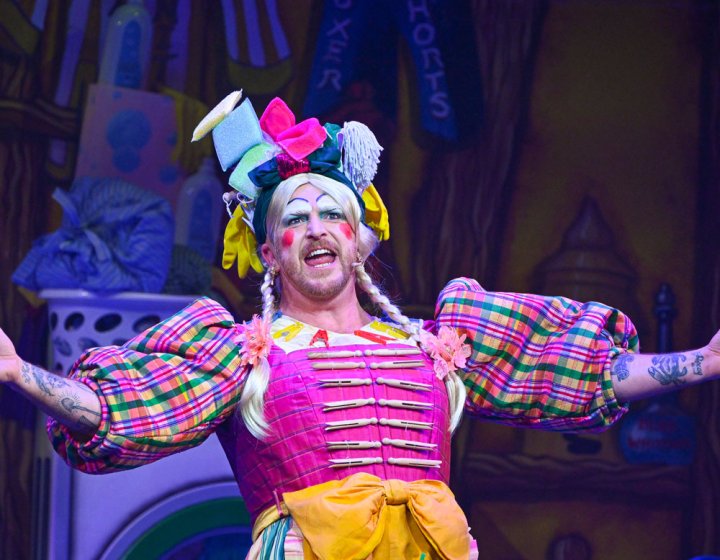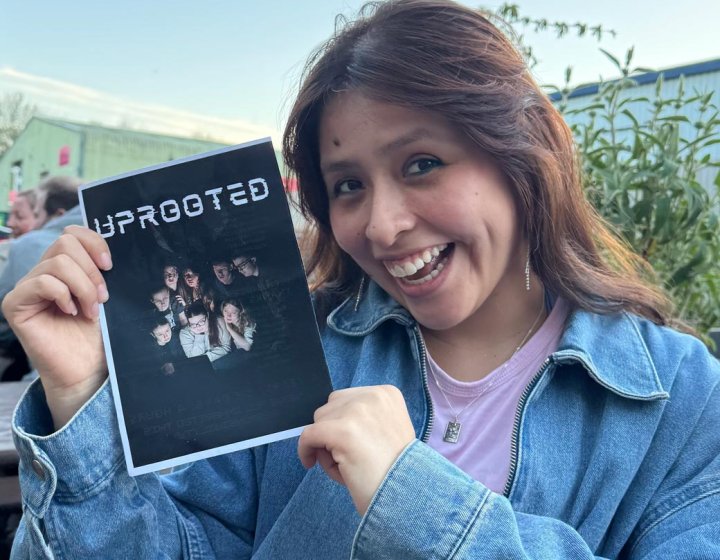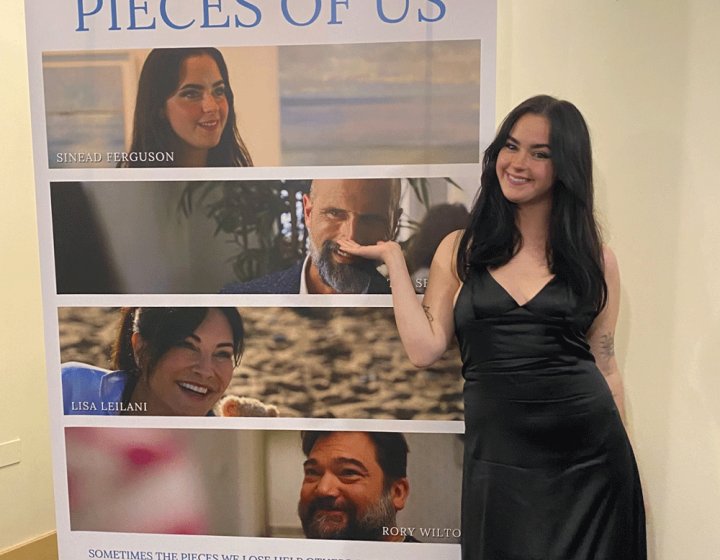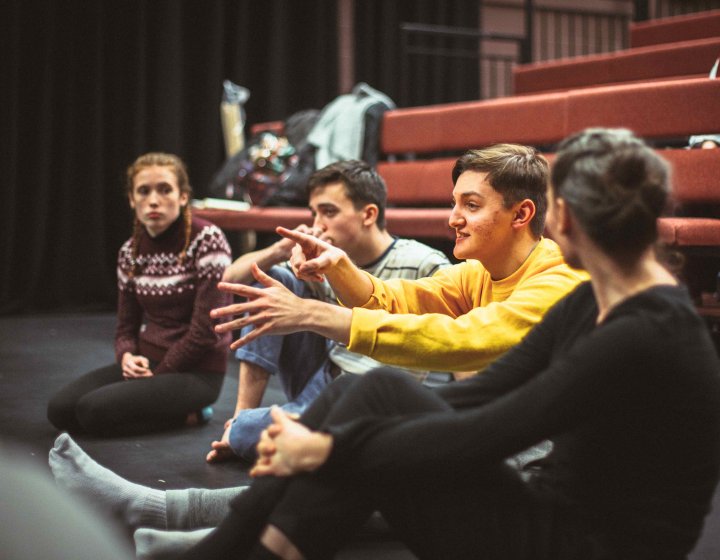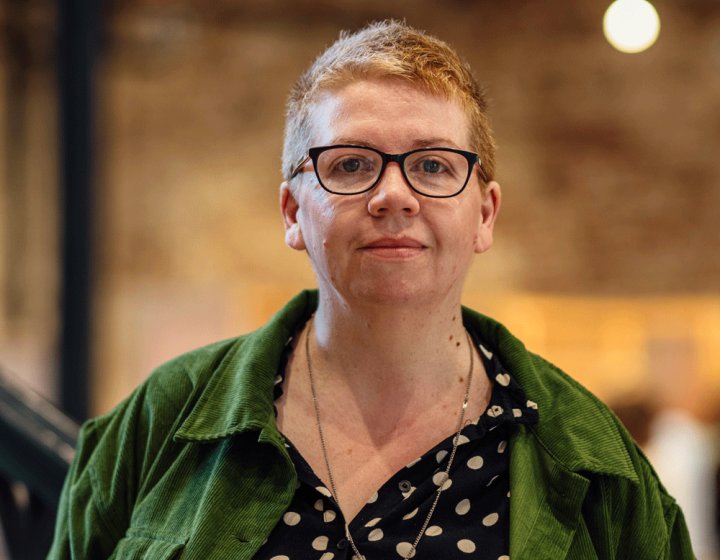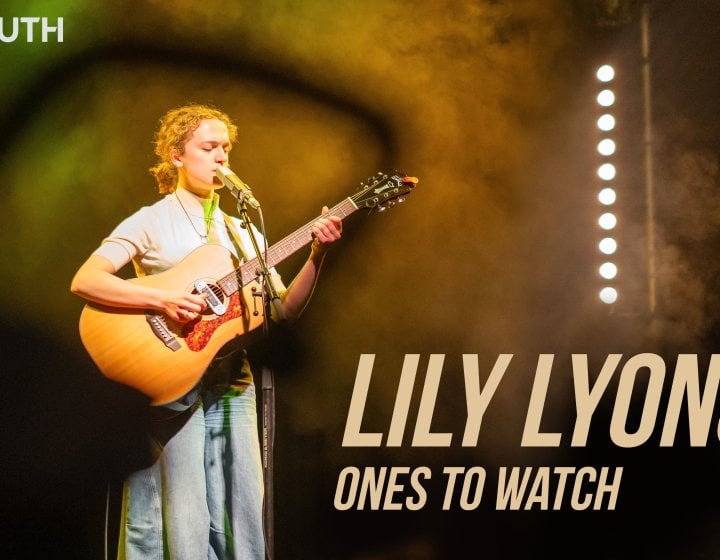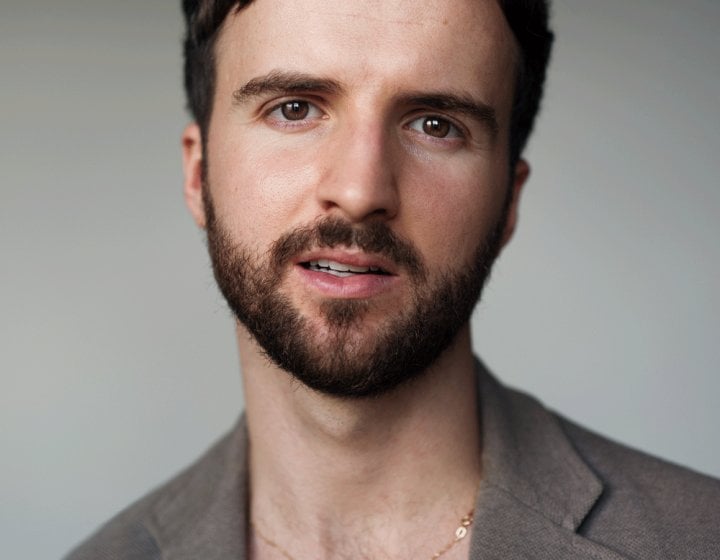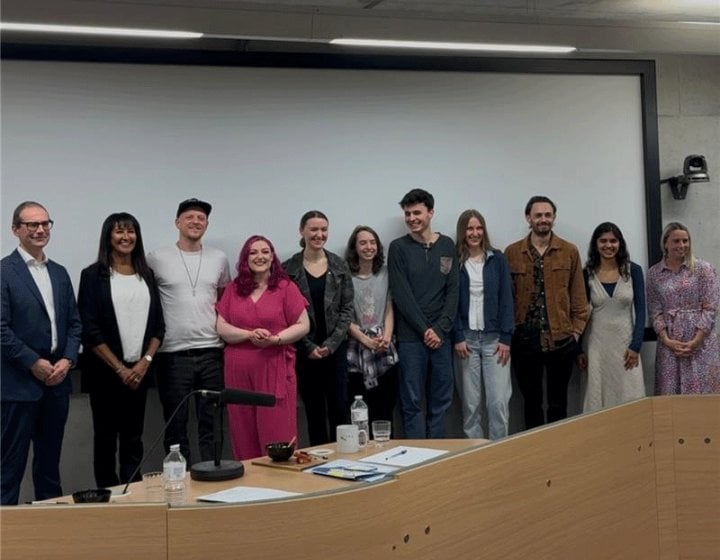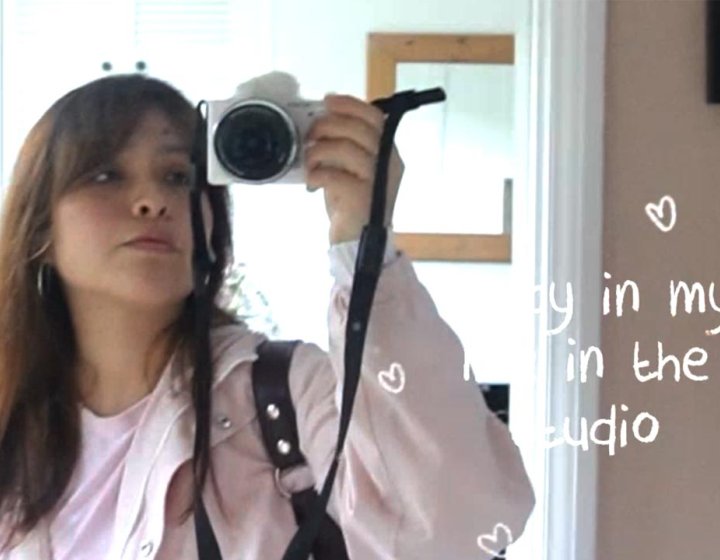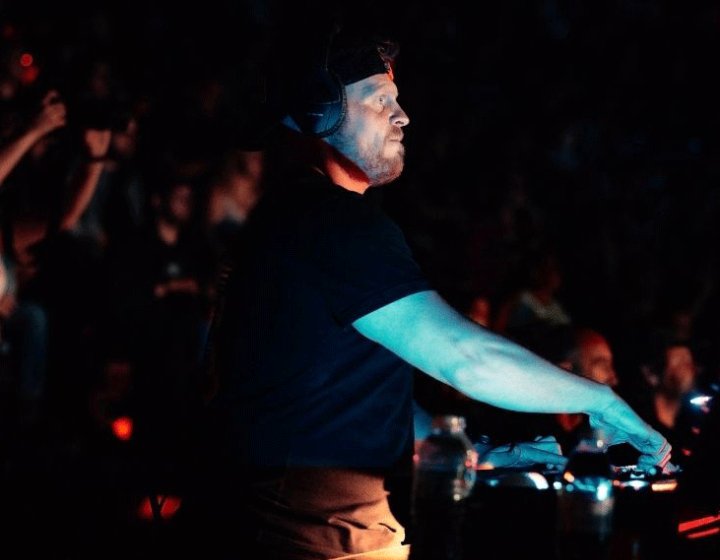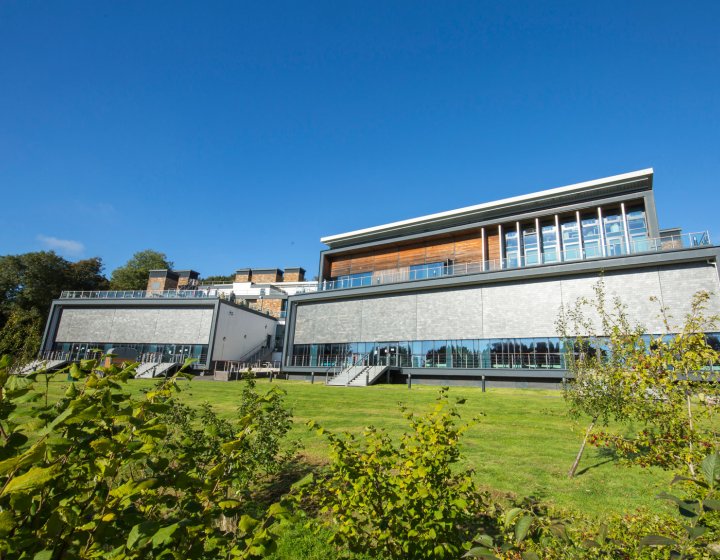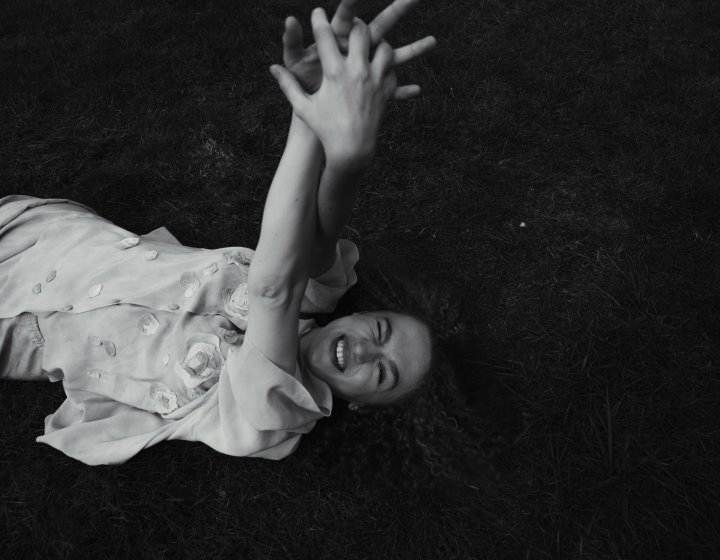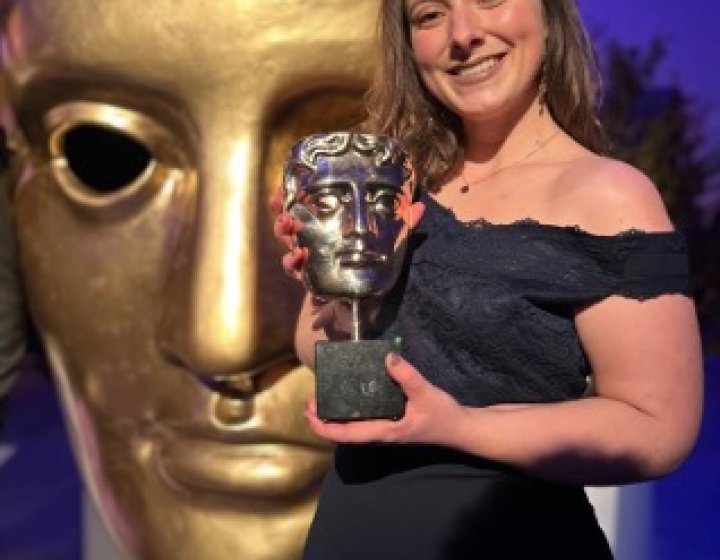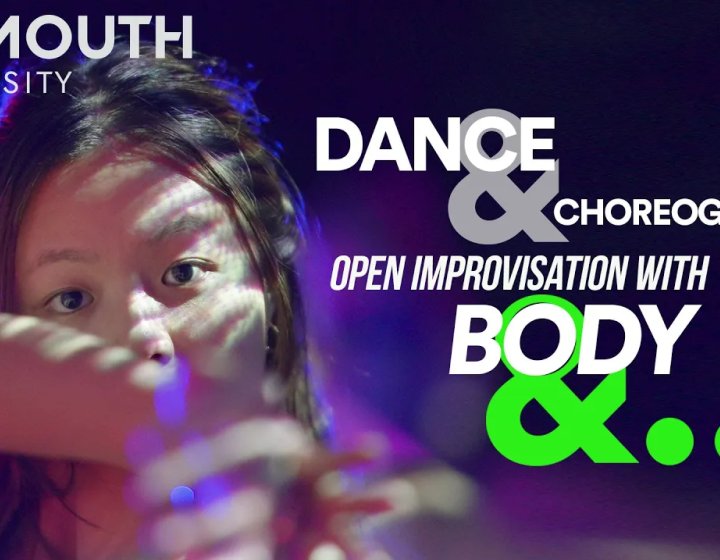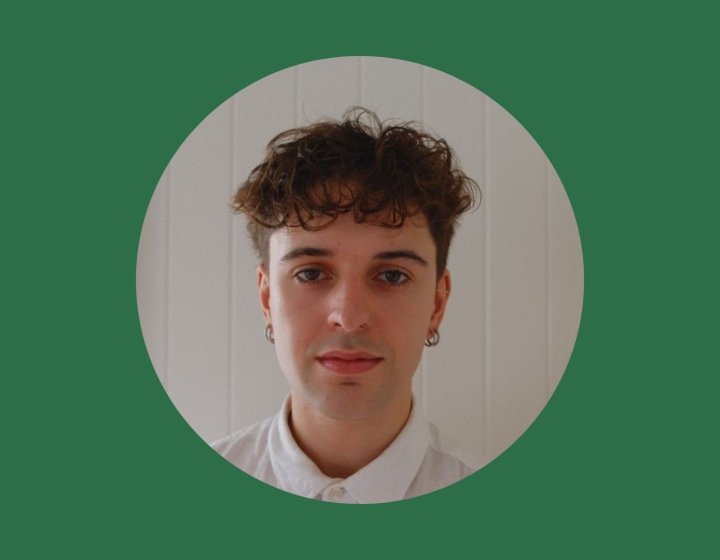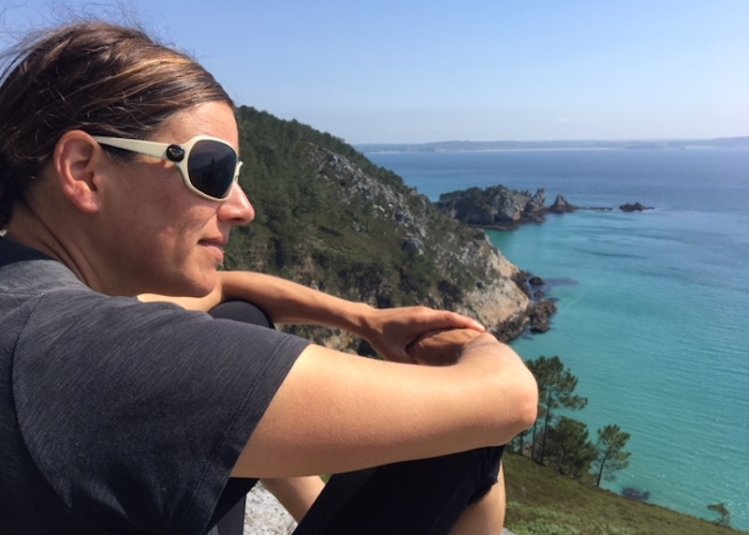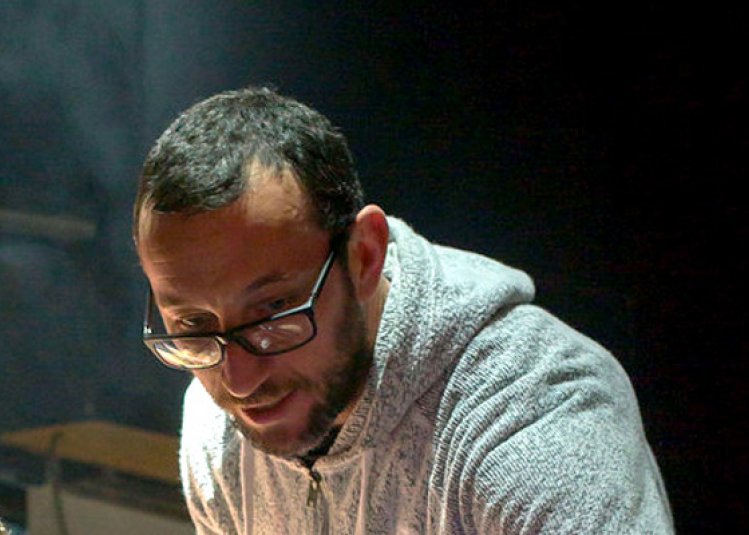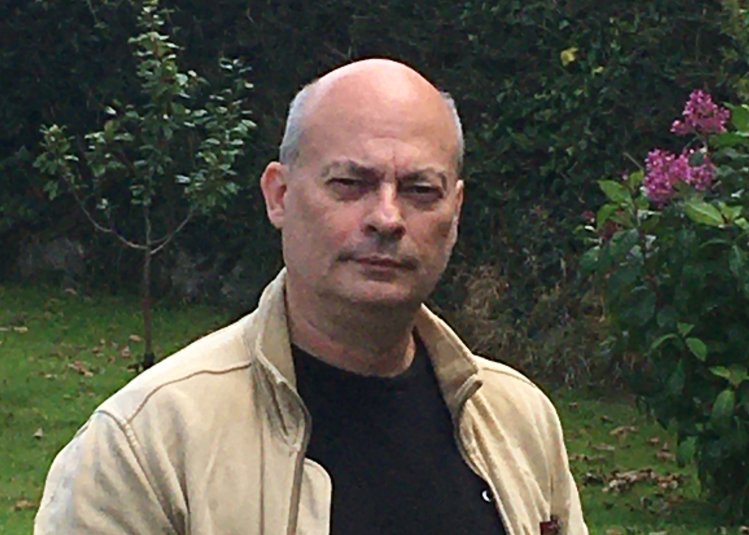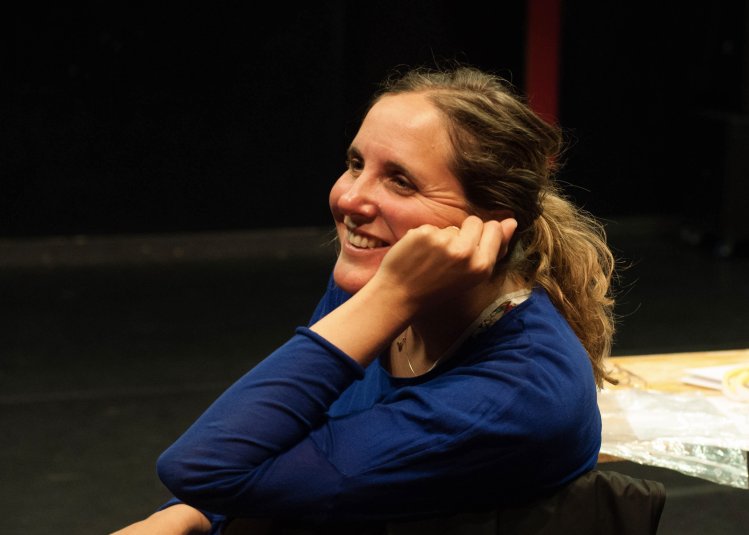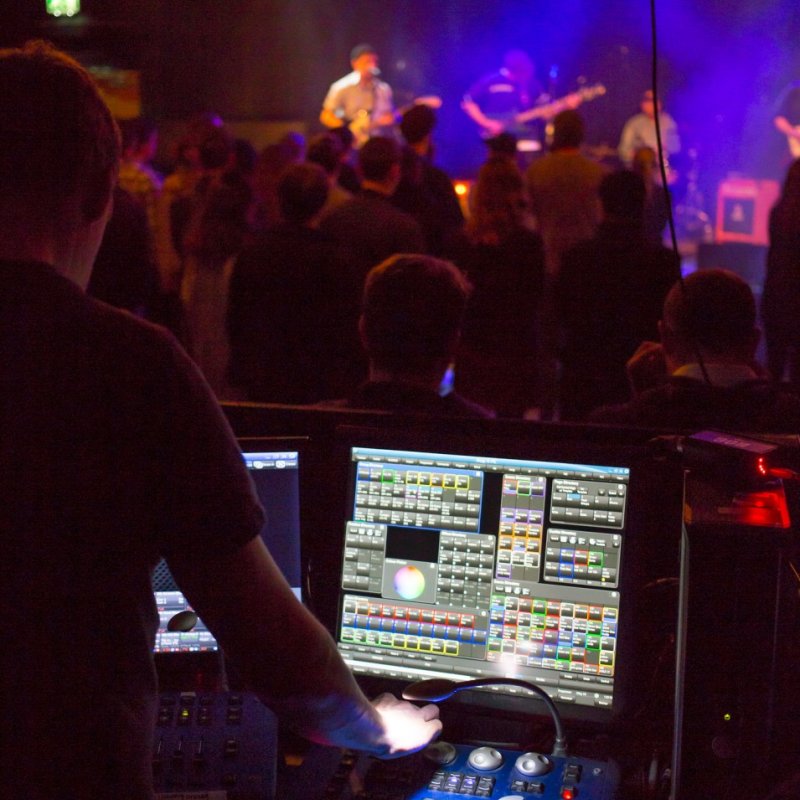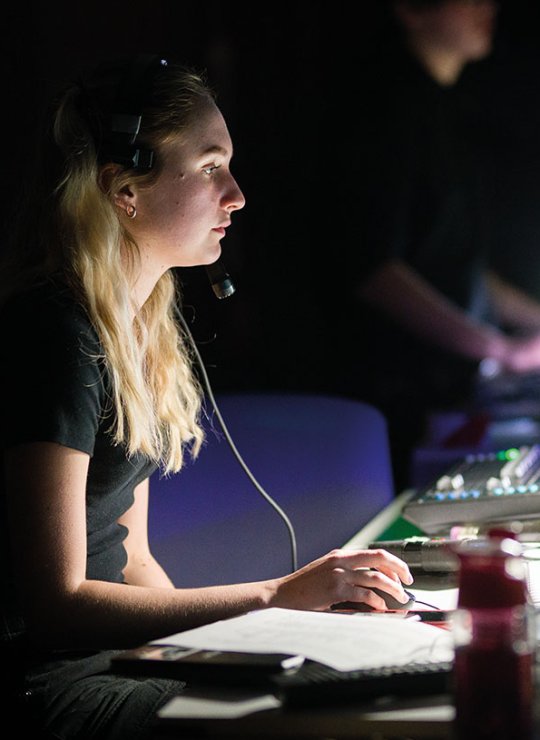
Technical Theatre Arts BA(Hons)
Master your passion for bringing stage and live events to life.
Course overview
Play a vital technical and creative role in the success of live performance productions. Working in our professional studios and production spaces, you’ll master the skills to captivate audiences.
You’ll learn from practising technical specialists and creative academic staff, becoming an expert in lighting, sound, visual technologies, set construction and stage management. With endless opportunities to work on real events – in collaboration with other students or through our public performance venue – you’ll graduate with real experience to take into industry.
You will:
- Gain an all-round technical grounding in live sound, lighting, stage management, rigging and scenic construction
- Receive a critical insight into the cultural sector, exploring how performance technologies and professional practice influence each other
- Work in state-of-the-art facilities with access to both core industry technology and some of the latest equipment.
- Broaden your skills by collaborating with students across a broad range of disciplines including popular music, contemporary dance, and musical, devised and traditional theatre
- Gain industry-recognised safety accreditations
Similar courses
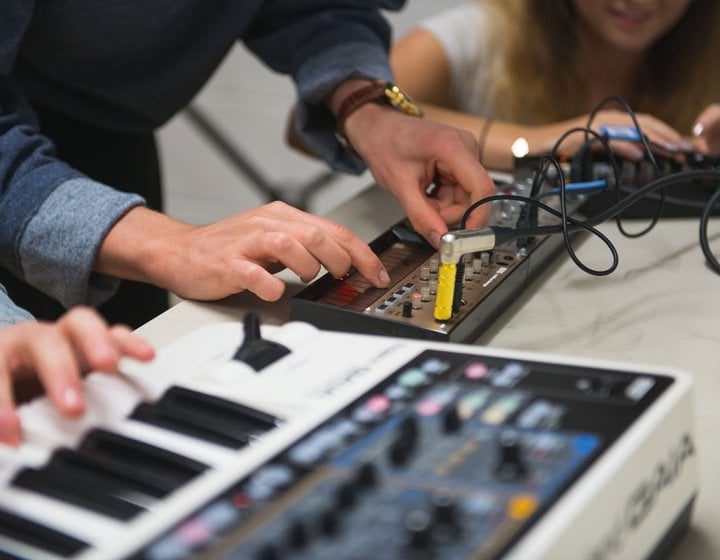
Sound Design BA(Hons)
Explore the boundaries of sound and its potential to transport an audience in different contexts, fr...
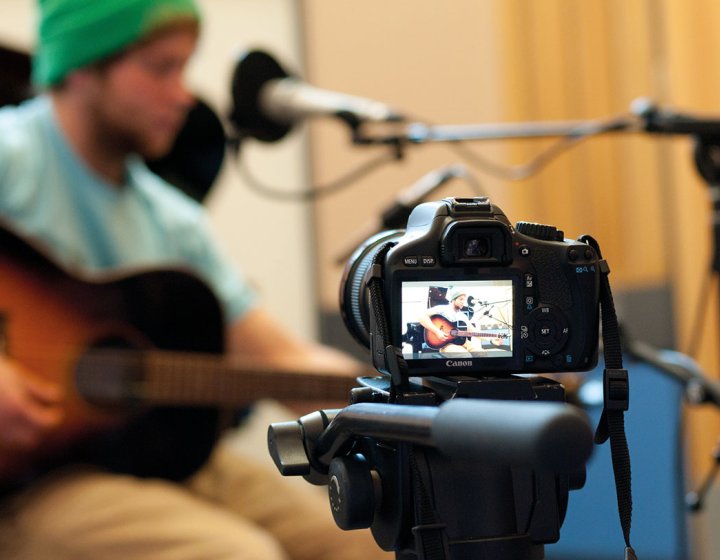
Music Business BA(Hons)
Get ready to shape the music business by mastering the skills needed to manage, create and innovate....
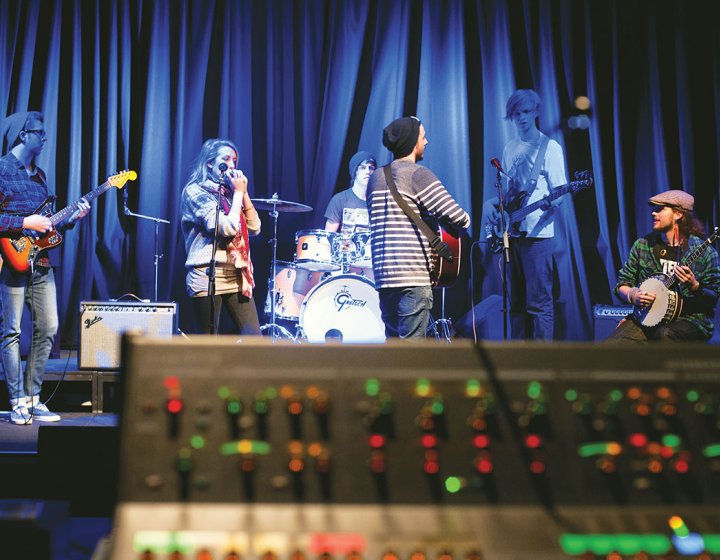
CertHE Music Courses
Take your first steps towards becoming a skilled creative music artist with one of our three CertHE ...
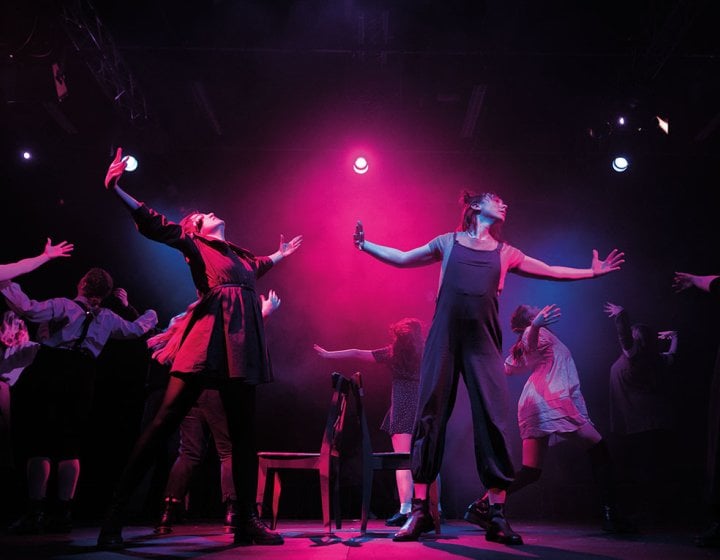
Musical Theatre BA(Hons)
Combining training in acting, singing and dance, this practice-led degree will empower you for a car...
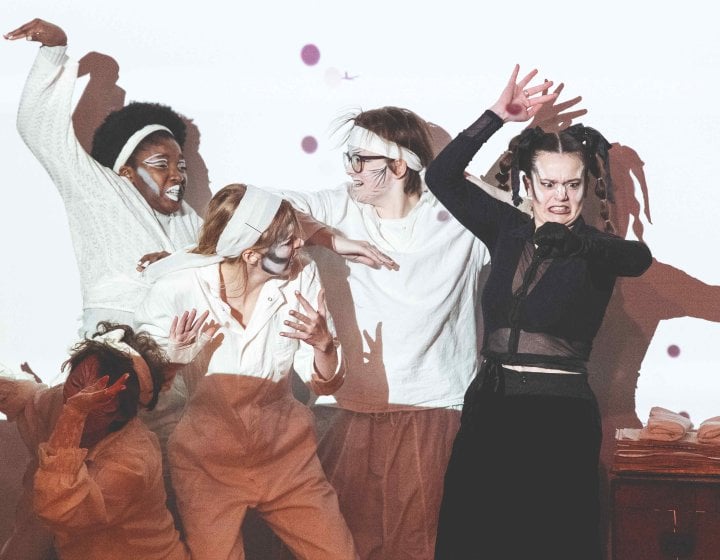
Theatre & Performance BA(Hons)
Embrace a world of opportunity to become an original and distinctive theatre maker and performer. As...
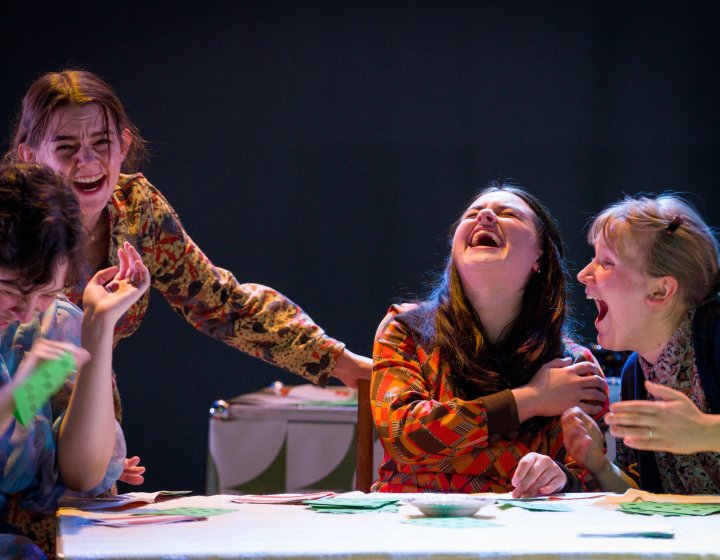
Acting BA(Hons)
Push boundaries to become a progressive actor in a highly creative and collaborative environment. Ba...
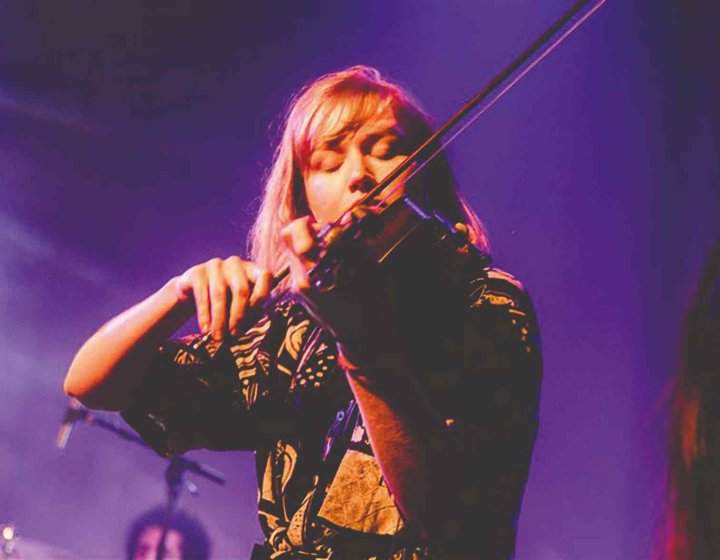
Music BA(Hons)
Prepare for a career as a professional musician with this industry-focused music degree. Based withi...
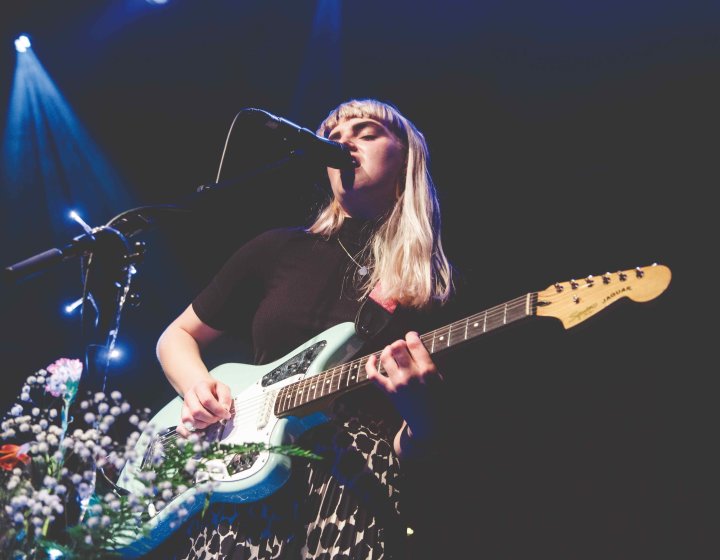
Popular Music BA(Hons)
Whether it’s underground or mainstream, DIY or commercial, acoustic or electric, this course is fo...
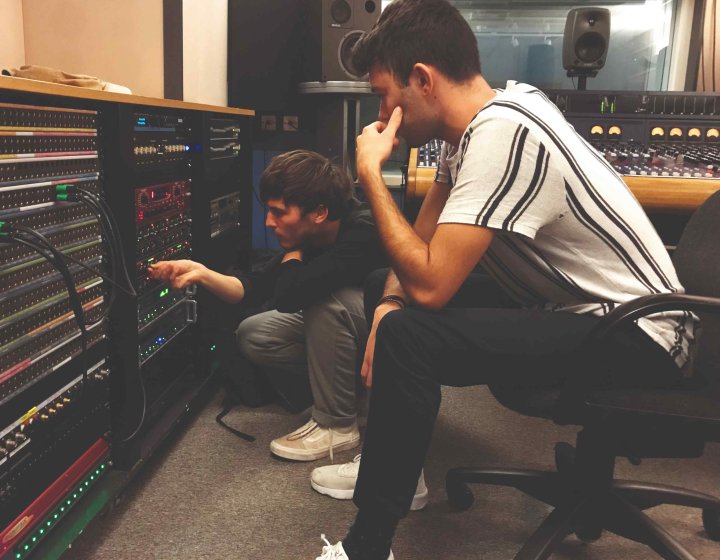
Creative Music Technology BA(Hons)
Develop the creative and technical abilities needed to thrive in the music industry. Exploring compo...
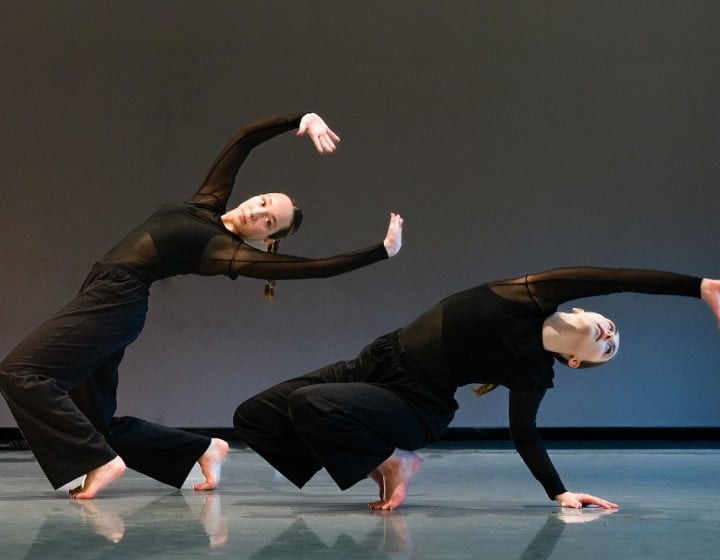
Dance & Choreography BA(Hons)
Launch your career as a dancer and an artist with this skills-focused dance degree. You’ll train i...
